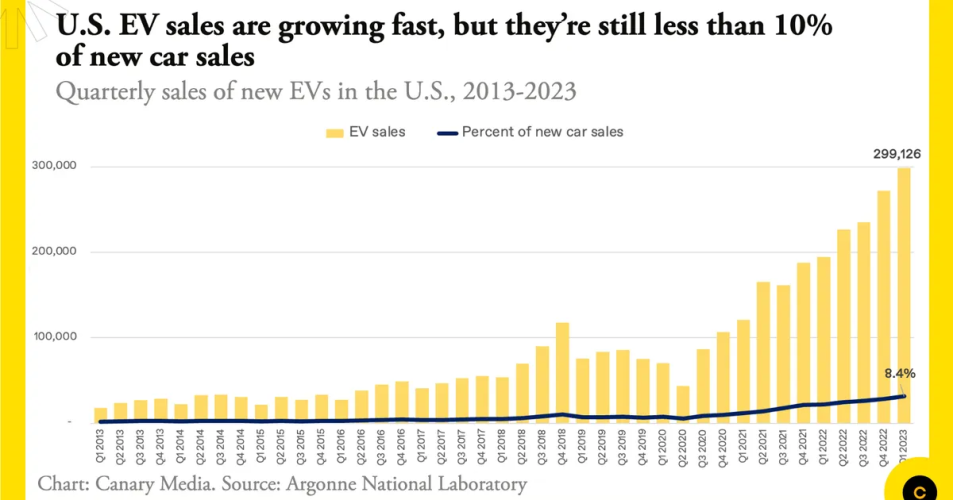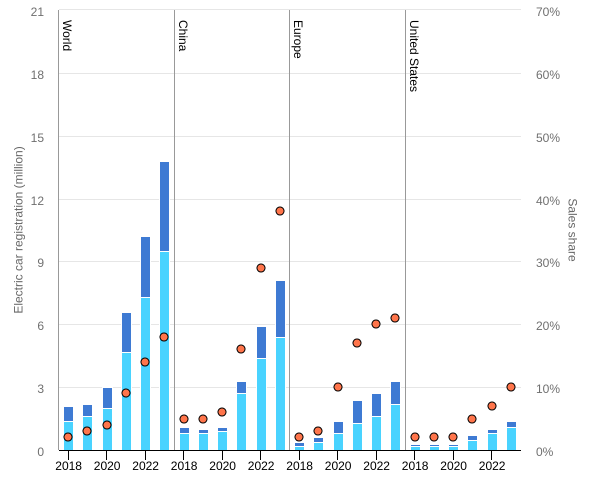The Electric Vehicle (EV) discussion thread (Merged)
I've seen some of these numbers... I think the EV market hits a hard wall at some point in a sense that - everyone who can afford one, and wants one... will eventually buy one... Then you have the "other half of the US" that doesn't live in a city... They live in the extended suburbs and rural areas... they grew up on mustangs, loud pipes, lifted trucks, hauling loads, dirt roads, ATVs, etc. Most of them won't have access to EV infrastructure any time in the near future... and good luck talking them into giving up the lifted F-250 on 35's for a Nissan Leaf or Rivian. Then you have the vast majority of the major inner city poor, broke college kids, lower-middle class trade and service workers, retired and elderly... They will never be in the market either... they can't even afford a car period... much less an EV.
I've seen some of these numbers... I think the EV market hits a hard wall at some point in a sense that - everyone who can afford one, and wants one... will eventually buy one... Then you have the "other half of the US" that doesn't live in a city... They live in the extended suburbs and rural areas... they grew up on mustangs, loud pipes, lifted trucks, hauling loads, dirt roads, ATVs, etc. Most of them won't have access to EV infrastructure any time in the near future... and good luck talking them into giving up the lifted F-250 on 35's for a Nissan Leaf or Rivian. Then you have the vast majority of the major inner city poor, broke college kids, lower-middle class trade and service workers, retired and elderly... They will never be in the market either... they can't even afford a car period... much less an EV.

